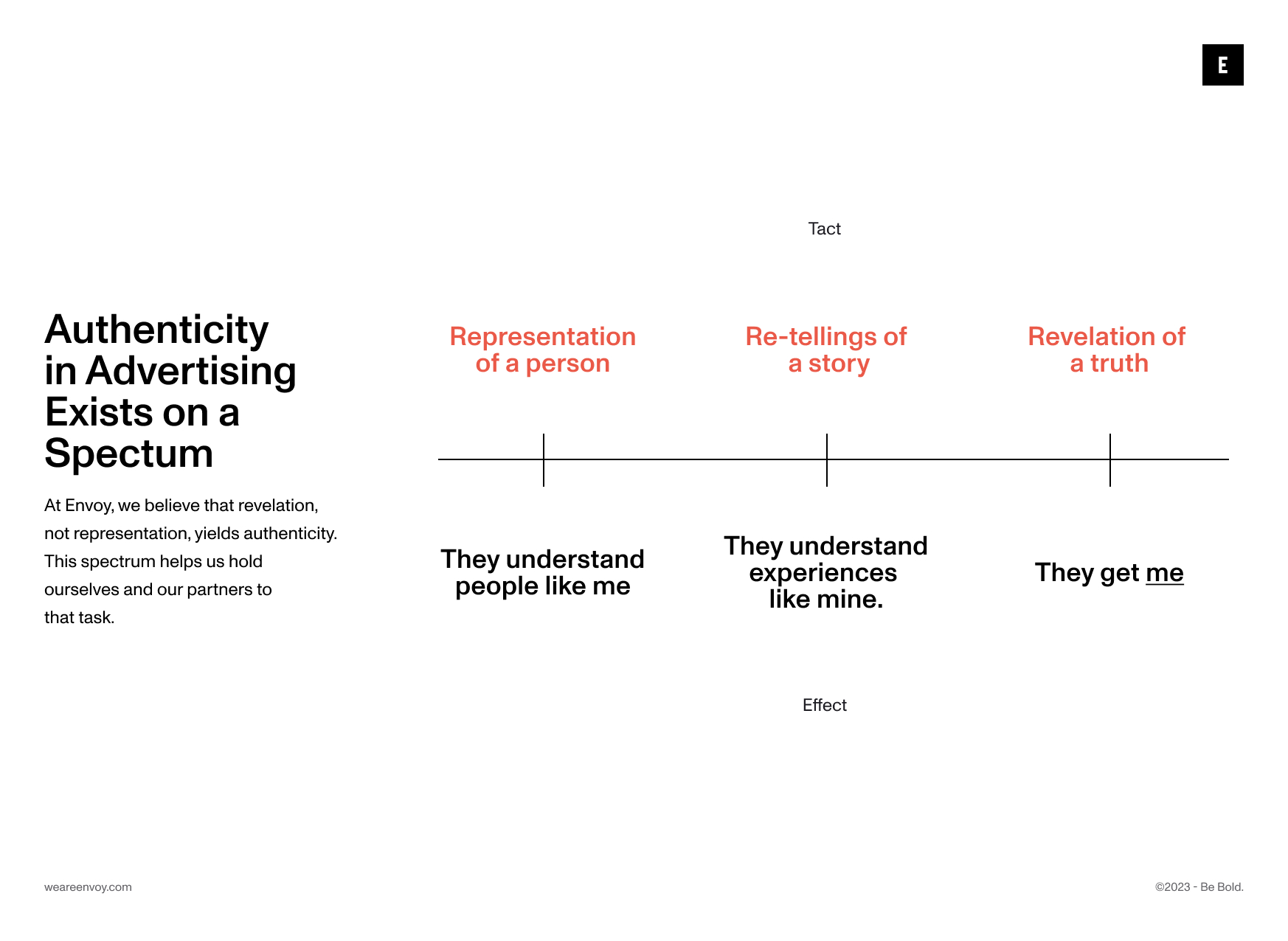The “UNdoctoring” of healthcare, and what it means for healthy brands.
November 20, 2023

Not that long ago, an actor in a white coat and a stethoscope was all a brand needed to signal their credibility. Not so today. Changes in technology, evolving cultural influences and our collective savvy or skepticism, depending on your viewpoint, have displaced physicians as the central authority in the health and wellness marketplace.
We see this in our day to day as brand stewards for our various health-related clients, but also as consumers of brands. And we’ve coined a term for it: the “undoctoring” of health. Buyer and businesses beware, it has profound effects for consumers, patients and brands in health and wellness.
“Doctor” has gone from symbol to storyteller
Whether it’s the rise of “celebrity doctors” like Oz and Phil or a creeping skepticism of authority in general, the perception of doctors as unbiased and credible endorsers of brands has plummeted. To be sure, a 2018 study reported that 32% of Americans between the ages of 18 and 34 said they believed that they could be a doctor “with little or no training.” But that doesn’t mean that the vaulted healthcare professional has disappeared from the world of brands entirely. Rather, what we’re seeing is an evolution in their role from a symbol of undisputed authority to a credible brand storyteller.
Specifically, we are experiencing a shift away from stock photography “doctors” and talking heads repeating throw-away recommendations, to learned-intermediaries and interpreters of complicated truths. One good example of this is Nutrafol, a hair restoration brand. Like health and wellness upstarts, its founders include physicians. But rather than rest on the laurels of their credentials, it is their own personal stories with hair loss and their motivation to find a solution that, together with their credentials, drive the credibility they offer the brand.
It’s not only brands who are realizing the power of doctors as storytellers. Physicians themselves are claiming their own influence as, well, influencers. TikTok abounds with physician-creators of all backgrounds, offering their informed perspectives on everything from common skin conditions to ultra-rare disease. And, in the process, they are forging a new brand of celebrity doctor that doesn’t sit in an ivory tower atop the rest of us, but emerges from the masses with humanity, empathy and expertise.
Revelation, not representation, yields authenticity.
At Envoy, we often talk a lot about a “Spectrum of Authenticity in Advertising,” in which we push ourselves and our partners to move beyond the mere representation of “real people” to drive authentic connection. This is especially important in health and wellness where the subject matter is innately personal. The default, for many brands, is to portray “real patients” whose authentic experiences are anticipated to command relatability and believability for the brand. And while there is merit in representing the communities you serve, this tactic has so been overplayed and poorly-played by pharma it can now come across as a trope.
Rather, we believe that the power of real patients is not in their mere representation or even in the re-telling of their stories, but the revelation of their truths: fundamental insights about their lived experience that demonstrates, more than a surface knowledge, a deep understanding on behalf of a brand or organization. When you connect with a fundamentally human insight, you cut through the complexity that is often involved in health and wellness marketing.
A powerful example of this is from the Fundacion El Herbologo in Chile. In working with Parkinson’s patients, they observed the tremendous benefits of medical cannabis on their condition. But the drug remained illegal. So, rather than merely petition political authorities, the foundation encouraged patients to write letters to them– one while using cannabis medically, and the other without the drug’s hand-steadying benefits. The patient truths were evident in the marked clarity of the letters written while under-treatment and helped to encourage the removal of cannabis from that country’s “hard drugs’ regulations.
Real patients, or product users in the wellness space, can be powerful voices for brands in health and wellness. But when their role is limited to representation the impact can too often feel superficial.

People shop for ingredients, but fall in love with brands.
When it comes to consumer health and wellness products we have entered an era of the “ingredient-aware” shopper. Much like superfoods, hero ingredients (think: Retinol, Vitamin C, Lion’s Mane and, recently, GLP-1s for weight loss) have entered the chat in a major way and many consumers actively shop for formulations, be it supplements, skin care or more, that profile the latest and greatest silver bullet. While brands that highlight en vogue ingredients do benefit from what people are searching for, they can risk diluting their distinctive value proposition overall.
One question we pose to our client-partners is this: do you want your customers to buy the ingredient from you, or do you want them to buy your brand? For most businesses with a long-term outlook, it’s the latter. Of course, this doesn’t mean abandoning the latent opportunity in dangling the latest shiny thing– or even the long-acknowledged thing that works. It does mean, though, having a perspective, value and voice that is more compelling than the sum of its parts.
Laird Superfood Creamers, for instance, are chocked full of amazing superfood ingredients like MCT oils, healthy-brain saturated fats, adaptogens, turmeric and more. In the work we did with the brand’s founders we wove these ingredients into a larger story about Laird himself, his overall philosophy and the lifestyle he helps fuel in all of us with his creamers and growing list of products. Our approach made certain that these superfood ingredients got a strong brand billing without ever taking center stage. The result was a brand that people fell in love with (and stayed in love with) first, and ingredients that substantiated that love with strong and defendable proof points in every package.
The beautification of wellness
A final observation in the undoctoring of health brand marketing is the popular conflation of the clinical and the cosmetic. The idea that health is – sometimes equally– an aesthetic concern as well as a physical one is pervasive in the positioning of today’s health and wellness products. And while it’s not totally unfounded–a healthy gut and liver do help get that glow–the use of appearance as a “hook” creates further distance between brands in this category and the realm of physicians.
Many of the branded claims that clutter our social feeds, for instance, aren’t just lacking a doctor’s stamp of approval– they have not been validated by any authority. One study looked at 157 dietary supplements and found a variety of untested claims relating to appearance including things like “beauty from within” and “promotes younger-looking skin,” none of which require authoritative vetting so long as– somewhere on the label– they are disclaimed as not having been evaluated by the FDA.Of course, so long as the claims they make are not unsafe, these brands do offer consumers something vitally important when it comes to their personal health– options.
Another perspective is that brands aren’t using beauty to sell health benefits but health benefits to sell, or substantiate, beauty claims. In a survey of supplement consumers in the UK, for instance, 87% said they took supplements for beauty benefits while only 67% took them for physical health. So, if people actually want a flat stomach, offering them a great microbiome not only builds believability in how a product might work, but helps them feel better about the purchase as an investment in their well-being.
New possibilities
In our view, the “undoctoring of health” isn’t necessarily a good or bad thing. Rather, it points to new possibilities in the way we position, market and think about health and wellness brands. And while we won’t pretend to have any special foresight into how it might resolve, we can’t help but wonder about what it might mean for brands and consumers. How will the growth of physician influencers on social media impact ‘doctorness’ in a post-information age? In the absence of meaningful regulation, will AI become an arbiter of brand credibility in consumer health? How might increased imperatives for sustainability come to bear on the category as a whole? And, what if, dare we consider, it works out for the better for our collective well-being?
Interested in exploring new ways to think about your brand or business? Contact us at engage@weareenvoy.com or follow us on LinkedIn

